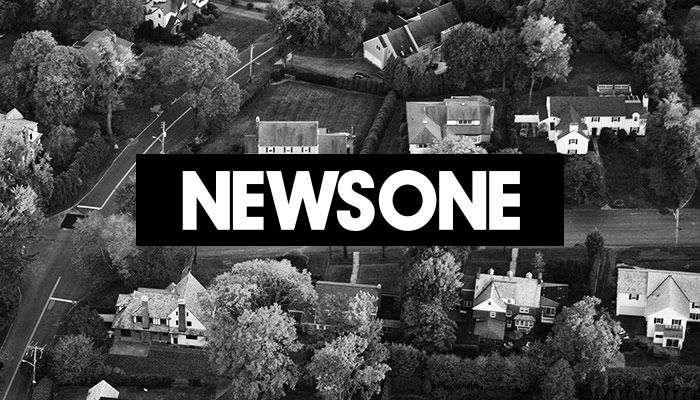Police Killing Black Men: Shooting Suspects In Back Going Unpunished
The Disturbing, Growing Trend of Police Fatally Shooting Suspects In The Back Without Consequence
UPDATED: 10:55 a.m. EST, June 21 — At least two more “suspects” who just happened to be Black or brown were shot in the back this week as they were fleeing police, according to reports. The most high-profile instance of the two came Tuesday in Pittsburgh, when a Black teenager hopped out of a car during a traffic stop and ran away before an officer gave chase and shot him to death. Antwon Rose, a 17-year-old honor’s student, was unarmed.
Protesters demonstrated in front of a police department on Wednesday standing with the backs toward the building in a symbolic move, according to the Pittsburgh Post-Gazette.
“If they want to shoot us, make them do it in our backs,” one protester shouted.
The shooting came on the same day that California’s state senate passed a bill designed to stop excessive force police killings that, if approved by the state house, could become a national model. And make no mistake: Rose’s shooting was definitely an instance of excessive police force.
Just days earlier, police in San Francisco shot a Latino suspect in the back while he was fleeing. Oliver Barcenas was accused of having a gun before he was shot on a busy street in broad daylight on Saturday, according to the San Francisco Chronicle. But the Independent reported that body cam footage later released by police showed Barcenas never had a gun.
“Those videos do not look good,” city lawmaker Aaron Peskin said.
Those two incidents follow police in Chicago shooting and killing Maurice Granton, Jr. earlier this month and officers in Sacramento shooting Stephon Clark in March. Both were fleeing police, and both were unarmed, even though police said they believed they weren’t.
Another sad, but telling, common denominator: As of Thursday, no charges had been filed against any of the officers involved in any of these four shootings.
Officers who kill suspects by shooting them in the back should be, by law, accused criminals, PBS reported in April. Fleeing suspects should be shot at only “in very narrow circumstances,” PBS wrote, citing a 1985 Supreme Court case as the legal basis for its claim.
“In other words,” the report continued, “a police officer who fires at a fleeing man who a moment earlier murdered a convenience store clerk may have reasonable grounds to argue that the shooting was justified. But if that same robber never fired his own weapon, the officer would likely have a much harder argument.”
While the upward tick for police shooting people in the back was troubling, perhaps even more disturbing was the fact that fatal police shootings across the country were on track to reach 1,000 for a fourth consecutive year, further exposing a broken law enforcement system that shoots and/or killed Black and brown people at a much higher rate than any other race.
Maybe law enforcement officials should spend more time informing their officers about why people (not suspects) flee when police come around instead of training them to shoot first and ask questions later.
Original story:
Two recent cases of police fatally shooting Black men in the back have shown no signs of progressing toward getting justice for what on the surface appeared to be murder at best and overzealous law enforcement at worst.
Maurice Granton, Jr., the most recent victim of police avoiding any immediate consequences for a questionable shooting, to put it mildly, died last week after officers aimed and then shot into his back as he ran away. His family has disputed police’s claim that a gun allegedly recovered on the scene belonged to Granton and demanded video footage recorded from body and dash cams, to no avail. The officers involved were placed on administrative leave, which all but amounts to a paid vacation. Meanwhile Granton’s family was left to mourn as the police department and local district attorney’s office offered a collective metaphorical shrug.
In Sacramento, the family of Stephon Clark has had to endure a similar fate. Local authorities have resisted charging the officers involved with the deadly shooting, which an autopsy later found that six of the eight shots cops fired entered Clark’s back. The district attorney serving California’s capital city has a lengthy history of not prosecuting police who shoot unarmed Black men, which Clark was at the time of his death in his grandmother’s backyard. Still, Anne Marie Schubert won her primary for re-election last week in a resounding example of job approval from residents who are more than 45 percent white.
Yet, both of those cases have shown no signs of nearing any semblance of closure despite racial profiling being the topic du jour following egregious police activity surrounding everybody from Black Starbucks patrons to Black people barbecuing in public.
The Chicago Police Department’s rich, lengthy legacy of corruption coupled with Schubert’s apparent cozy relationship with the police in Sacramento likely means each case will end in a familiar result: no jail time, and probably not even an indictment, for the offending officers. (While Michael Slager was sent to prison for shooting Walter Scott in the back in South Carolina, he was an exception to what has become a longstanding, unofficial law enforcement rule of not valuing Black lives.)
Officers who kill suspects by shooting them in the back should be, by law, accused criminals, PBS reported in April. Fleeing suspects should be shot at only “in very narrow circumstances,” PBS wrote, citing a 1985 Supreme Court case as the legal basis for its claim.
“In other words,” the report continued, “a police officer who fires at a fleeing man who a moment earlier murdered a convenience store clerk may have reasonable grounds to argue that the shooting was justified. But if that same robber never fired his own weapon, the officer would likely have a much harder argument.”
In the case of Clark and Granton, neither fired a gun. In fact, as mentioned earlier, it was debatable whether Granton had one at all, and the “gun” police suspected Clark had turned out to be a cellphone. But officers policing Black men in particular rarely let proper protocol affect the strong implicit bias toward African-Americans that police training typically reinforces among recruits, whether it be subliminal or otherwise.
Yet here we are, in the 12th week since Clark’s execution, and there have been no charges filed. For Granton, it’s only week 2, but if history was any indication, there’s no reason to expect charges in his case anytime soon, or, more accurately, at all.
SEE ALSO:
Hundreds of People Fatally Shot By Police In 2018 But NFL Bans Players Kneeling
Good Luck! Black Cop Who Shot Unarmed White Woman To Use Same Defense As All Cops
















